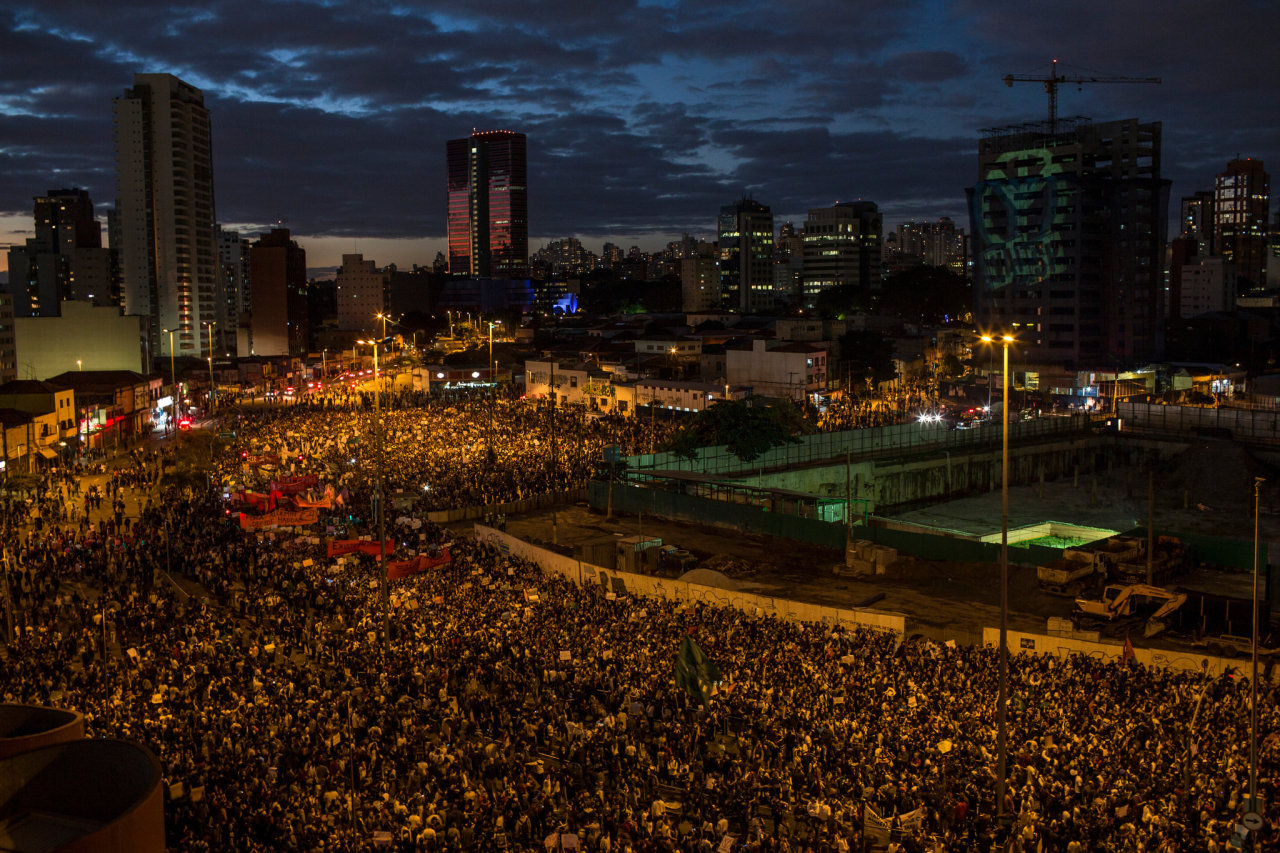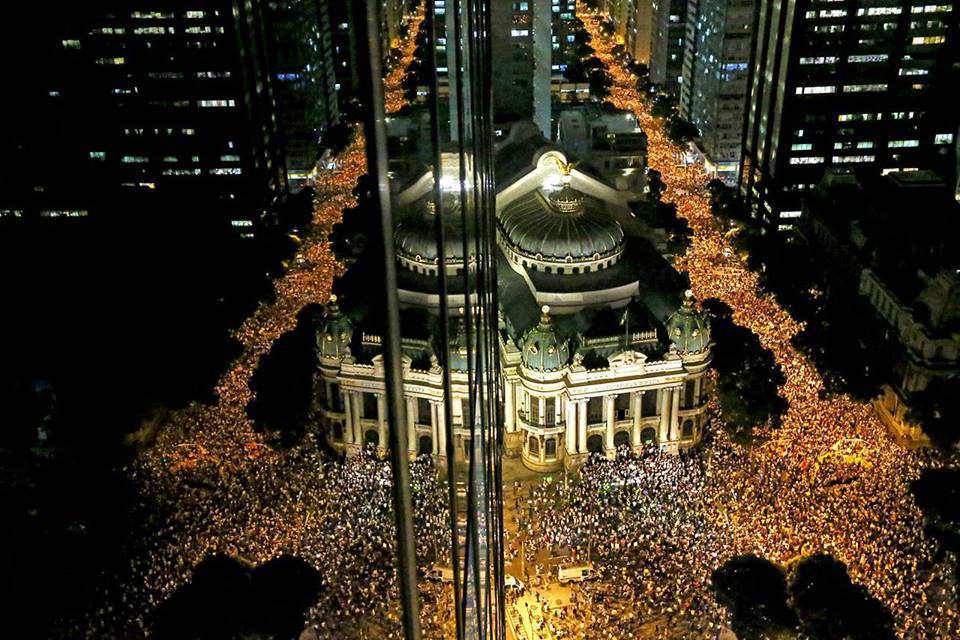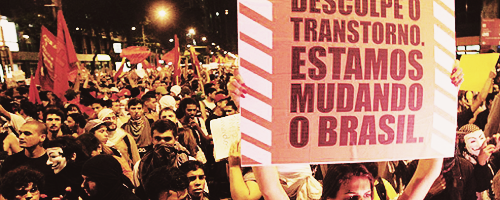The World Cup and the world’s protest in Brazil
The World Cup and the world’s protest in Brazil

The World Cup and the world’s protest in Brazil
“Everything in Brazil is a mess. There is no education, health care — no security. The government doesn’t care. We’re a rich country with a lot of potential but the money doesn’t go to those who need it most.” - 26 year old Brazilian photographer Manoela Chiabai, speaking to the AP.
The pre-match pleasantries exchanged before each Confederations Cup match belie a dark reality: the people of Brazil are boiling over, and soccer fans and social media mavens worldwide are facilitating their distress.
Over $13 billion has been spent by the Brazilian government on stadium infrastructure and investments related to the World Cup; $13 billion in a country where the income of the average Brazilian hovers around $400 per month. Add in the destruction of historic favelas to make way for a safer Brazil, a dubious stadium bid process and misused government grants, and you have a World Cup more accurately defined by corruption, gentrification and a suppression of the real issues plaguing Brazil, than any sort of sporting spirit.
Brazilian scholar Fabio Malini told the New York Times that “The largest protests are happening in cities which will host World Cup games. Brazilians are mixing soccer and politics in a way that is new, and minority voices are making themselves heard.”
Of course, this isn’t to say that the nearing World Cup is at the root of the ongoing social and political concerns which have led to friction amongst the Brazilian population. Inflation and unemployment are high, the disparity between social classes is expanding, and the poor are bearing the brunt of a new-found focus on globalization and international image; the World Cup is just a spark to long-brewing frustrations. People are suffering, and nothing could seem further from resolving their ills than oppressive concrete stadiums and soon-to-be abandoned hotels.
It shouldn’t come as a surprise, then, that tens of thousands of Brazilians are taking to the streets in protest, from Rio de Janeiro to Brasilia, with calls for a renewed focus on domestic concerns in the face of a country focusing more on reputation than functional betterment. Unfortunately, neither is it a surprise that Brazilian security forces are viciously expunging peaceful protesters in an effort to provide the world with an image of a sanitary, united Brazil.
Here’s the kicker. None of us had anything to do with the World Cup bid process. Not a single one of us had a voice in the passage of government policies in Brazil. We did not choose to place the priorities of the Brazilian masses on the back-burner, and neither did we authorize the savage treatment of protesters. But we do continue to watch the Confederations Cup. We still look forward to next year’s World Cup with a naive joy. We still shrug our shoulders at each bit of corruption in world soccer, and we still tacitly approve ongoing mistreatment of domestic populations in the name of short-lived international tournaments.
Because it’s Brazil or bust, right? [Posted by Maxi. And for those hoping to follow the protests as they unfold, we’re compiling a (primarily English-speaking) Twitter list from journalists and reliable sources based in Brazil]









